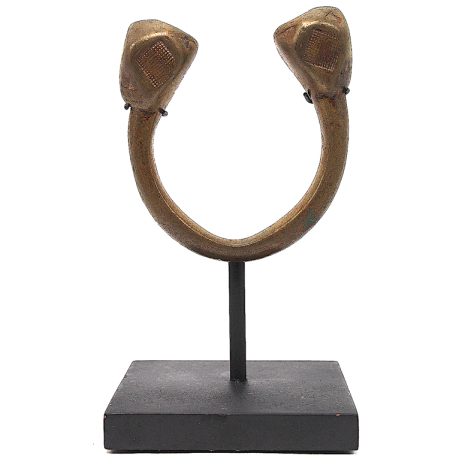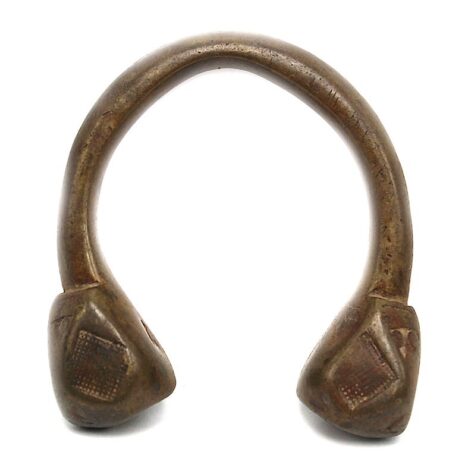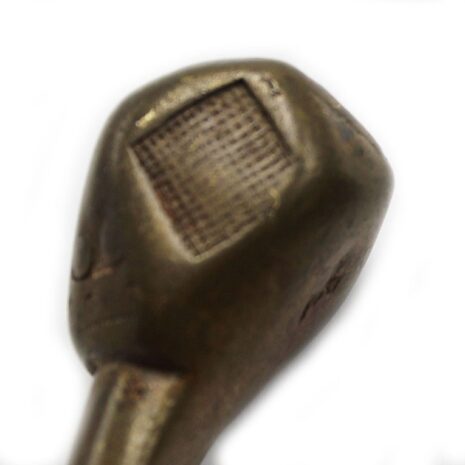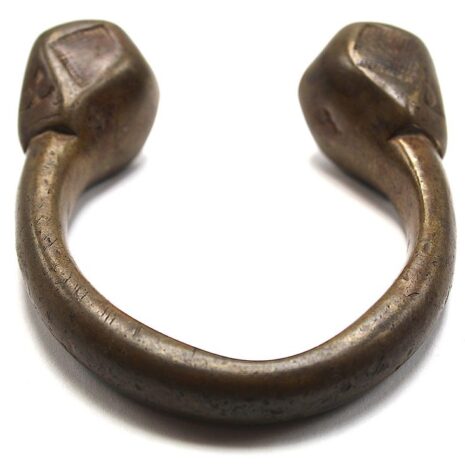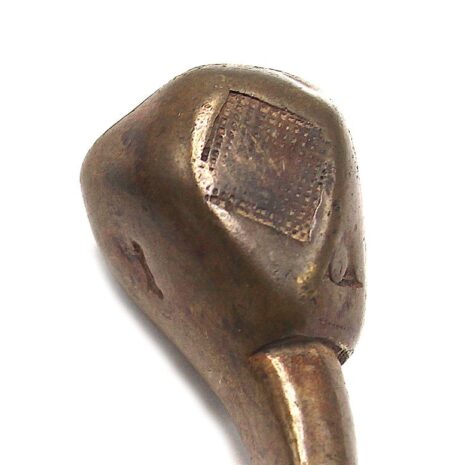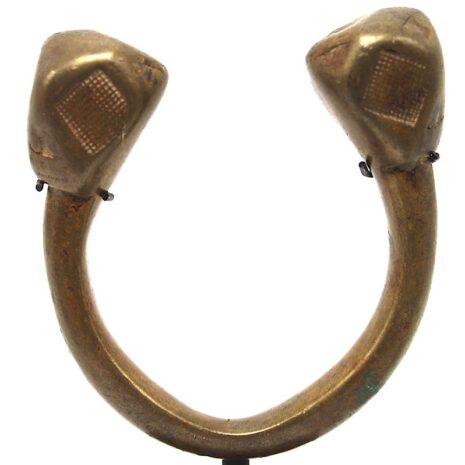Antique Tuareg Manilla Currency Bracelet, North/West Africa (3152)
Original price was: $285.00.$225.00Current price is: $225.00.
Bracelet H: 3.875” W: 3.5” Thick: 1.125” | FREE SHIPPING WITHIN CONTINENTAL U.S.
Tuareg horseshoe shape manilla with bulbous rounded faceted ends, hand hammered fine details.
Description
Two million Tuareg herders were historically nomadic peoples traversing the Sahel and Sahara Desert in North African countries of Mali, Niger, Libya, Algeria, Chad and West African Burkina Faso. With a rich metalwork tradition Tuareg artisans created brass and copper bracelets that were easily portable for nomadic populations, as symbols of wealth and status; fashion adornments; ceremonial pieces and storing and exchanging wealth. Tuareg group used unique African Art symbols and decorative motifs passed down for generations. Followings Islam, they are prohibited from creating figures and instead use abstract geometric designs. As explained by Dassine Oult-Yemma, Poet of the Ahaggar, sticks indicate legs of men, camels and other animals, crosses or x’s indicate guiding signals at roads and circles have a spiritual meaning. “We start from our heart, and move from circle to circle ever more widely, into the Circle of Life, like the horizon circles around you and your herd.” (Hagan and Meyers). During the colonization of Africa in the 1500s, the British, French, Portuguese, Belgians and Dutch appropriated African metalwork bracelets, manufactured their own versions in Europe and called them manillas. They became currency for the slave trade referred to as slave bracelets, slave trade money and slave currency to purchase slaves for American plantations. Although manillas were primarily made by colonial western nations after the 16h century, the Tuareg historically continued to create manilla-like pieces for their cultural and economic systems. Prohibited for use by foreign traders under the Manilla Currency Ordinance of 1919, during1940s and 50’s they were confiscated and melted down. Manillas are still worn by slave descendants in the Caribbean as family treasures to pass on to future generations.
Made from a sand mould this one-of-a-kind horseshoe shape bracelet has bulbous rounded faceted ends finely decorated with hand hammered diamond shapes enclosing finely incised checkerboard cross-hatching. This bracelet is in excellent condition with some fading and a fine patina
Click here for the Blog Manillas: Former African Trade Currency.
Sources
Helen E. Hagan and Lucile Meyers, Tuareg Jewelry: Traditional Patterns and Symbols, Xlibrus Corporation, 2006.
Additional information
| Place of Origin | Africa |
|---|---|
| Materials and Technique | Bronze/brass/copper alloy |
| Period | Antique (1200-1920) |
| Date | 19-20th Century |
| Dimensions (inches) | Ht: 3.875" W: 3.5" D: 1.125" |
| Dimensions (metric) | H:8.55cm W: 8.89cm D: 2.54cm |
| Weight | 15 oz |
| Condition | Excellent, fine patina demonstrating age and use |
| Item Number | 3152-XKM |
| Shipping Box Size |

